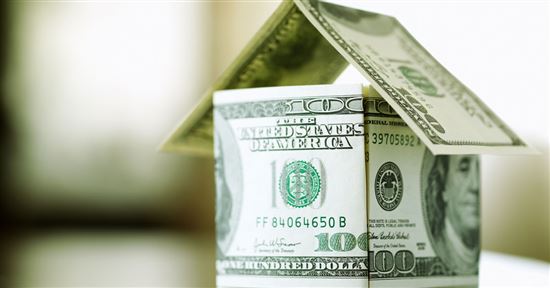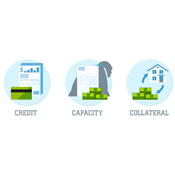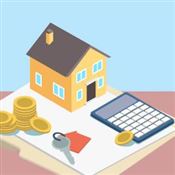Study: Average Down Payment on a House
Down payments aren't as big as you might think. 20% is not required. Don't assume you can't buy a home without 20% down. Read our report to see how others made homeownership a reality.
 |
Down Payment Averages - Not What You May Think
- What is the average down payment on a house?
20% is still the magic number, but the national average shows otherwise. Homeowners put down an average of 11% on a home. Within that figure are jumbo loans that average a 23% down payment and conventional loans with an 18% down payment. FHA and VA loans bring the average down. - What is the average down payment for FHA loans?
FHA loans averaged a down payment of just 4.8%. The FHA requires a minimum down payment of 3.5%. It's often a great program for first-time homebuyers or those without a large down payment. - What is the average down payment for VA loans?
Veterans have the benefit of not putting any money down with a VA loan. However, the average veteran put down 2.2% when buying a home. - What is the average down payment for first-time homebuyers?
First-time homebuyers put down an average of 4% on their new home. This number isn't surprising. The typical renter pays 30% of his income towards rent. They still have other daily living expenses too. This can make saving for a down payment difficult for renters. - What is the average down payment for repeat buyers?
Repeat buyers put an average of 14% down on a home. They often have the benefit of proceeds from the sale of their home. This may make it easier to afford a larger down payment.
The Average Homebuyer - How They Stack Up
- Where does the average homebuyer get their down payment from?
Down payment funds come from a buyer's savings account 61% of the time. 35% use funds from the sale of their current home. The remaining funds come from gifts from friends or relatives.Tip: Use a Chase coupon before you open a new savings account. Earn interest while you save up the down payment. - How many homebuyers need a mortgage?
Of all of the homebuyers last year, , 88% financed the purchase. This is a 4.4% drop from just 10 years ago, when 92% of buyers financed their home. This means there are more cash buyers on the market today. - How many borrowers used conventional financing?
59% of borrowers use conventional financing. This number has remained fairly steady through the years. - How many borrowers used FHA financing?
24% of borrowers chose FHA financing. It isn't just young borrowers using FHA financing either. 20% of buyers over 70 years old used FHA financing. This just goes to show that it's not only a first-time homebuyers program. - How many homeowners pay off their mortgage in full?
Paying off your mortgage is a huge accomplishment. In rural areas, 44% of homeowners own their home free and clear. In urban areas, the number is slightly lower at 32.3%. It's believed that the average age in rural areas is higher, which accounts for the higher home ownership rates. - How many buyers get pre-approved for a mortgage?
Pre-approval is the key to successful financing. In fact, 82% of homebuyers secure approval before shopping for a home. This can help put things into perspective. Maybe you don't have enough saved. What if you don't qualify for the loan amount you wanted? It's better to know this upfront. - What's the home ownership rate in the United States?
During the 2nd quarter of 2017, the homeownership rate equaled 63.7%. This is just slightly higher than the 2nd quarter of 2016, which had a 62.9% homeownership rate. - Which states have the highest home ownership rate without a mortgage?
West Virginia has the most homeowners who are mortgage-free. Coming in second are Louisiana and Arkansas.
Qualifying for a Mortgage - What You Must Know
- How much do you have to put down on a house?
Every borrower will have a different answer to this question. It depends on the program you choose. It also depends on your credit score and debt ratio. For example, conventional loans require a minimum 5% down. But the payment must fit into your debt ratio. If you exceed the allowed ratios, you may need a higher down payment. If not, you'll need a cheaper home. - What are the average closing costs on a mortgage?
You pay closing costs in addition to your down payment. The closing costs don't make your down payment any lower. In fact, they increase the amount of money you need at the closing. On average, you should budget between 2 and 5 percent of the sales price of the home. Areas with a higher cost of living will have higher closing costs, and vice versa. - What is the average mortgage payment?
Today, the average homeowner pays $758 in just principal and interest. This doesn't include property taxes and homeowner's insurance, each of which are required for all homeowners. - How much house can you afford?
At CreditDonkey, we recommend keeping your mortgage payment less than or equal to 28% of your gross monthly income. This should leave you with enough money for daily living expenses, emergency funds, and household maintenance. - Can you afford a mortgage?
A bigger question you might want to ask is if you can afford a mortgage payment. Even if you stick with a payment that's less than 28% of your income, you may still have other debts. Your total monthly debts shouldn't take up more than 36% of your income.An easy way to figure this out is to take your monthly income and multiply it by 36%. From that amount, subtract any monthly debts you currently pay. The amount left over is what you should be able to afford. If your debts (including your mortgage) exceed 36%, it could make it difficult to afford your mortgage.
- How much do you need to save for a house?
In a perfect world, you should save 20% of the purchase price for a down payment. Not everyone can afford this. If you have a long time to save, you may hit that goal. If not, you can opt for a low down payment program, such as the FHA loan.You probably don't know how much you'll spend on a home. You can assume a $550 payment for every $100,000 you borrow. Using the above ratio calculations, you can get an estimate of what you can afford.
- How much is Private Mortgage Insurance?
If you put down less than 20%, expect to pay PMI rates between 0.3% and 1.5% of the loan amount. This is on an annual basis. On a $200,000 loan, this means between $600 and $3,000 per year. You'll pay it on a monthly basis, though. Insurance companies base your premium on your credit score and loan-to-value ratio. - Can you cancel PMI?
Yes, you can cancel PMI. But first, you must owe less than 80% of the value of the home. This may occur sooner than the lender tells you, though. If the home appreciates, you'll have more equity faster. If you pay more towards your principal on a regular basis, you'll have equity faster too. Either way, the law requires lenders to cancel PMI automatically when you owe 78% of the value of your home. - How much is Mortgage Insurance on an FHA loan?
The FHA charges two types of mortgage insurance. Upfront mortgage insurance is 1.75% of the borrowed amount. You pay this at the closing. On a $200,000 loan, you'd owe $3,500 in addition to your other closing costs. The FHA also charges annual mortgage insurance at a rate of 0.85%. You pay 1/12th of the annual amount each month. On the $200,000 loan, you'd pay $142 per month for the first year. - What is a piggyback loan?
Borrowers who want to avoid PMI but don't have 20% to put down have one more option. The piggyback loan may provide 10% of the funds you need for the down payment. You provide the other 10%. This leaves you with a first mortgage with an 80% LTV and no PMI.
Bottom Line
Only you know what you can afford. Do your research and look closely at your budget. We don't recommend buying more than you can afford. Keep your mortgage payment within 28% of your monthly income. Even if it's not your dream home, you will be happier without the financial stress.
Sources and References:
Write to Kim P at feedback@creditdonkey.com. Follow us on Twitter and Facebook for our latest posts.
Note: This website is made possible through financial relationships with some of the products and services mentioned on this site. We may receive compensation if you shop through links in our content. You do not have to use our links, but you help support CreditDonkey if you do.
Read Next:







